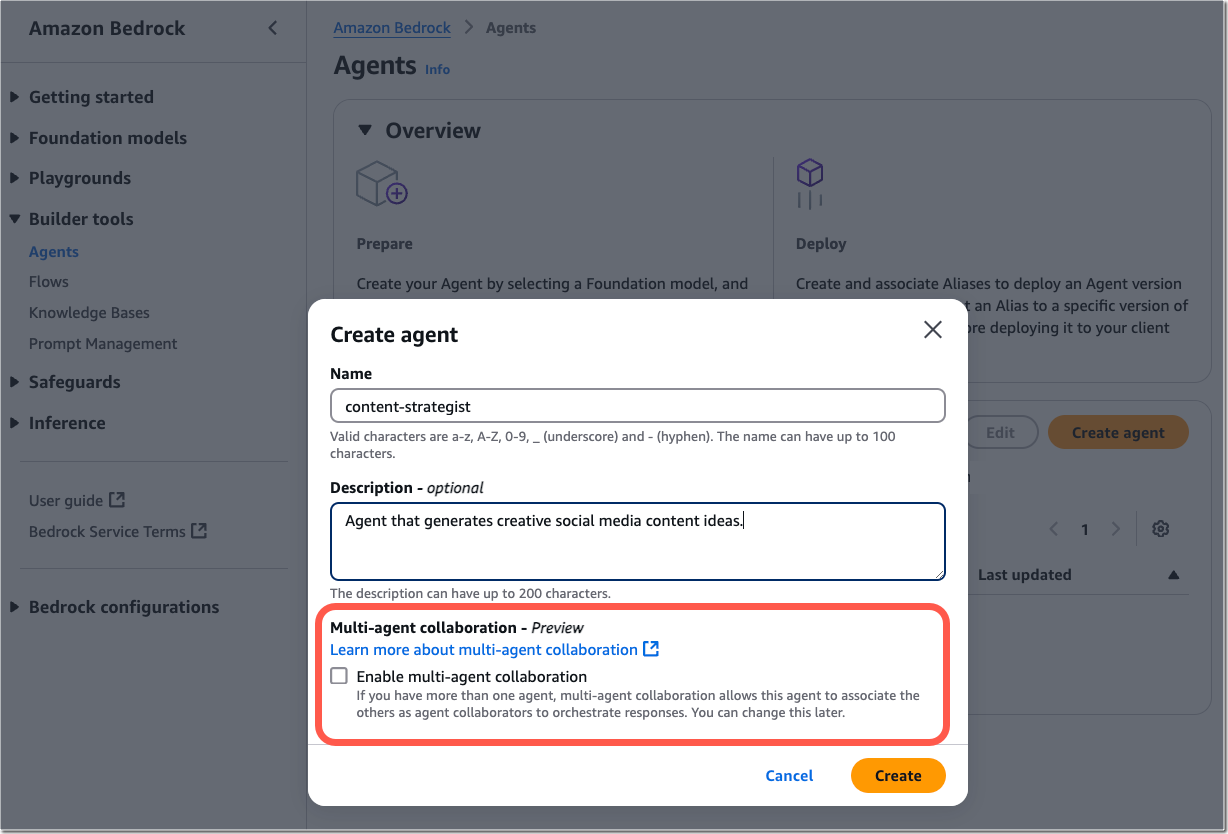This Tuesday at re:Invent 2024, AWS announced two new features available in preview on Amazon Bedrock: Model Distillation and multi-agent collaboration. Neither announcement is particularly surprising: model distillation has become a popular approach to attain a balanced performance that leverages the speed and cost-efficiency of a smaller model and the accuracy and knowledge of larger models; likewise, multi-agent collaboration is considered a promising approach towards what many tout as the next great milestone of AI: "agentic" AI.
Amazon Bedrock Model Distillation lets users transfer knowledge from a larger, more expensive but accurate model to a faster, smaller, more affordable one. The only restriction is that both models have to belong to the same model family from one of the supported providers, namely Amzon, Anthropic and Meta. Moreover, the process is not without consequences: Amazon reports that the knowledge transfer comes at the cost of up to 2% loss of accuracy. Broadly, the Amazon Bedrock Model Distillation process begins with response generation using the larger model, enhancing response generation with proprietary synthetic data, and fine-tuning of the student model. For the full details, see here.
The Amazon Bedrock multi-agent collaboration focuses more on managing several AI agents configured to perform tasks as part of a more complex workflow, rather on the deployment proper. For this reason, the selling point of the multi-agent collaboration feature is the possibility of deploying a "supervisor agent" which takes charge of delegating tasks isolated by breaking down requests, and of compiling individual agents' outputs to present them as a final response. According to the announcement, this can be done without coding, allows for reusing existing agents as subagents in new workflows, two different supervisor modes, a consistent supervision interface, and an integrated trace and debug console. The full details and an overview to get started can be found in the official announcement.







Comments